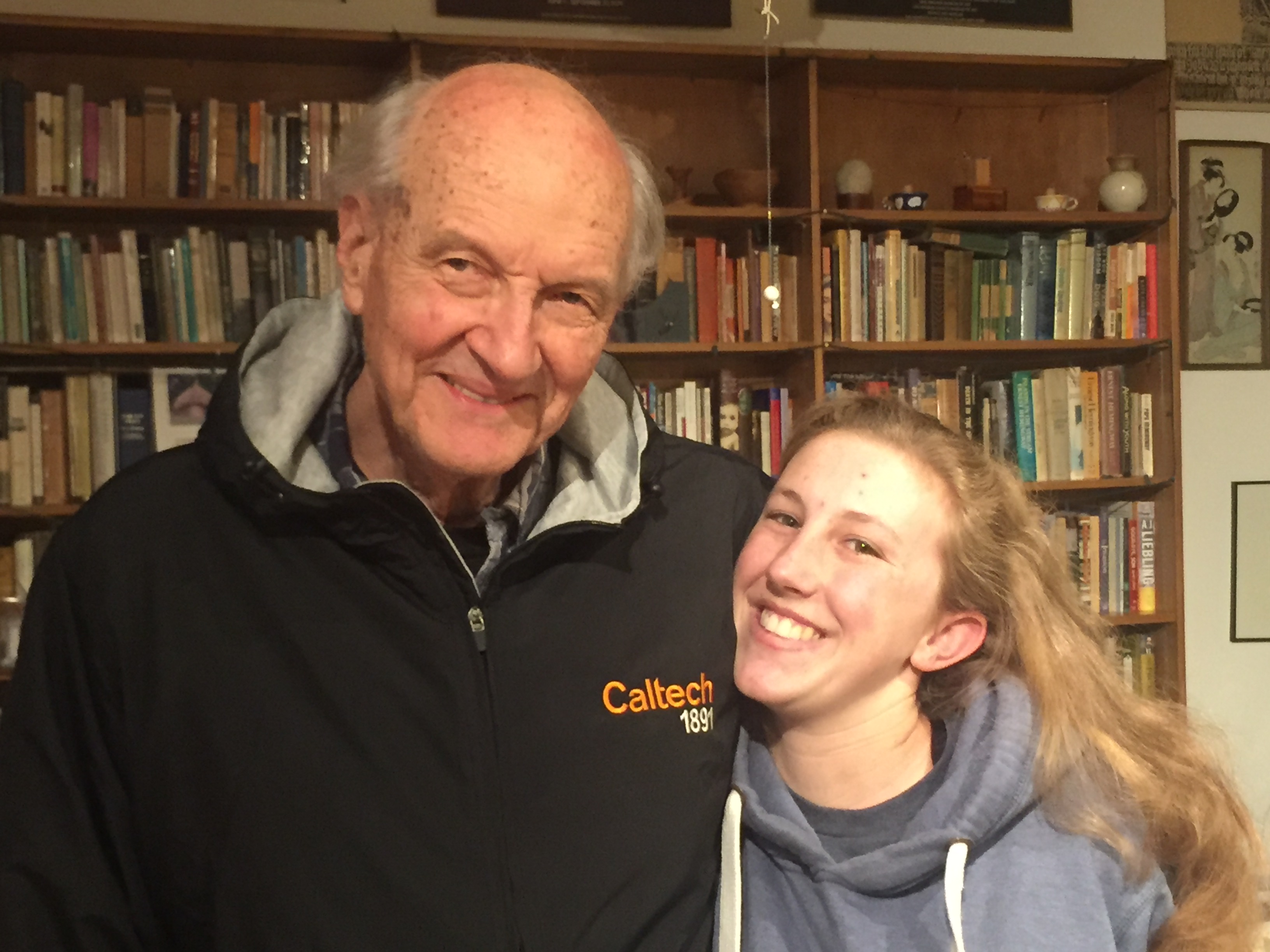
In his late twenties, John Ridland began teaching in the English Department at UCSB. Some years later, I was in his English 105 class. He had good handwriting. The first time I read it, the handwriting said, approximately, “This reminds me of a song I heard on the radio, a country and western song.” I understood.
There is a way of being in the natural world without harming nature — you leave the place pristine, meaning wild. John gave that kind of attention. He would think all the way around something and leave it whole. He was against too much analysis of things. The poem is dead if you pull it apart. And emotions. And deeply felt events.
When possible, the Ridlands spent part of each summer in the mountains. For John, music seems to be all over the place but normal, like toast.
Listening to the ‘Waldstein’ Piano Sonata
Amid the rapid fingerwork
of the third movement
I heard a percussive clang
I could not place:
It rang like a maul
driving a steel wedge into a log.
And so of course it was,
as it is in the mountains.
That same morning, early,
the split logs in the stove
sang a squeaky song
I’d never known they knew.
Otherwise, silence
except for the breeze through the firs.
The year after English 105, there was a fire in the bank in Isla Vista. Other pieces of the news were sharp and urgent too. John took our class on a silence hike.
In 2019, he mentioned that he was translating the Odyssey. My first thought was, “Stop.” The Odyssey? He lent me a printed version of what he’d finished. It is so good that I borrowed pages fresh enough to be handwritten. Amazing. From him, though much earlier, I began to learn small useful things: When you’re writing and you cross out a word and write another one but then see the first word is better, write “stet” nearby in the margin.
John Murray Ridland was born in 1933 in London. His mother was English, his father Scots. He was very young when a doctor suggested that John’s health would benefit from a warmer climate. Decisions can be made. The family relocated to Southern California. He grew up in Southern California, attended Swarthmore College (BA, Hons), and earned a PhD in Claremont Graduate School. Early on, his poems began appearing in literary magazines. One poem, “New Zealander,” describes an unlikely friendship that began in Northern California. The New Zealander agreed to marry him. Their most recent wedding anniversary marked 62 years.
He has a lovely poem about their children’s grade-school photographs. I doubt that anyone (yes, I) can be taught to see what is there. In the classes I took, John created a situation where the student replaced the teacher. You would find yourself explaining things. One assignment made me glad I was not an English major. This was in the fourth class I took and probably phrased better than how I remember it: “Why is ‘The Rape of the Lock’ a great poem?” Well, it’s funny, that’s why. Okay. I read the poem and read the poem and read the poem and read it. Hate made me careful. That’s how I knew thinking does not actually hurt: It just feels that way. I had never worked that hard. Probably the essay was as good as a burned pancake, but I cooked it on my own brain.
Several of John Ridland’s books were published by Harry Duncan in Duncan’s Abattoir handpress editions. Abattoir/Cummington is famous for publications of eminent U.S. poets, such as William Carlos Williams and Richard Wilbur. One virtue of friendship is this: If your friend is an eminent poet, it doesn’t get in the way. You can enjoy the unusual eloquence of the poem titled “Night Song for My Wife to Sing at Dawn, with Ducks.”
John and Muriel Ridland visited Hungary in 1987. He fell in love with the folk epic János Vitéz (John the Valiant) when he saw the JánosCellar murals in Budapest. Sándor Petőfi’s spirited poem is for children in about the same way Alice in Wonderland is for children. It was virtually unknown to English readers since it first appeared in 1845. Hungarian is unrelated to other European languages. To capture the spirit and tone of the original, John worked seven years with the text, helped by literal translations and suggestions from Hungarian friends and writers. His translation received enthusiastic recognition (which might be slightly unusual for poetry).
In 2013 the mock epic poem The Lincolniad (considering modern times and in praise of Lincoln) was published as a special edition of Askew magazine in Ventura. Happy in an Ordinary Thing, a volume of his poetry, was published by Truman State University Press, also in 2013. He was part of a poetry group that includes Santa Barbara poetry laureates.
The Commemoration for John Ridland is Saturday, March 14, 1 p.m., at the Unitarian Society of Santa Barbara, 1535 Santa Barbara Street.
